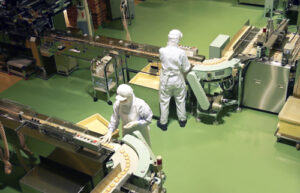 The importance of security systems in food factories across the UK and why CCTV should be included in any specification
The importance of security systems in food factories across the UK and why CCTV should be included in any specification
After news that meat wholesalers in the UK were not complying with the requirements set out by the Food Standards Agency (FSAP) — investigations had to be carried out. This investigation has impacted businesses such as Wetherspoons, as well as schools and care homes up and down the country.
After similar scandals presenting themselves in the past, customers are beginning to lose their trust in production companies and this could potentially lead to supermarkets cutting contracts. But what are the benefits of having viable security systems in place?
With the advancements in technology, systems can be designed that will help protect those working in food factories, as well as those who are eating the produce from them, whether this is preventing a physical threat or a threat that makes its way into our foods.
The first step for securing your premises is installing access control systems. This will put an instant barrier between operations and any entry attempts by unauthorised personnel. Whether this a swiped identification card, biometrics or a passcode way of entry, only authorised personnel will be granted access.
A popular feature to business premises to ensure property protection is CCTV, but the capabilities of such systems are much wider. By spring 2018, all slaughterhouses within England are required to have CCTV systems in place that can be reviewed by the FSA who have unprecedented access to footage within a 90-day period; is this something we should be looking to do in food factories to ensure safety for the British people?
According to 2020 Vision, CCTV is a great investment for any food factories producing for major supermarkets as it will allow them to gain greater insights to their entire production line and ensure the trust of customers across the country.
Read the full article in the May 2018 edition of PSI magazine



